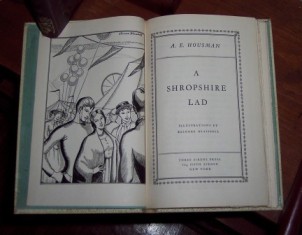Miss Snark fields a question from a writer whose novel has been rejected repeatedly as “not competitive.” The writing is good, the story interesting, and yet the novel doesn’t seem to have what it takes to make the cut.
Here’s a portion of Miss Snark’s response:
I see quite a few books as partials or fulls that are pretty darn good but there’s nothing there that makes me say “aha!” I have to be able to answer the questions “what makes this stand out from the crowd” “what is going to surprise me” when I send this to editors. Business as usual will not do that.
The bar for becoming a fiction writer is, on the one hand, ridiculously low. You like words, you like stories, you own a computer or at least a bit of charcoal and the back of a shovel, and you’re there.
So it’s disquieting to discover that what you’re writing may not be good enough to get published. (Of, if you get a little further, not good enough to sell out your print run. Or, a little further along yet, not good enough to make you a living.)
Miss Snark’s advice:
I suggest stepping back from the project for a bit. Work on something else for awhile. Then go back and really look at your characters and plot. You have to be able to look at your work with an objective eye. That’s the single biggest weakness in writers: they can’t see how their own work looks on the literary buffet.
But (and I’m making an oblique confession, here) maybe that’s not it. Maybe we can see. Maybe the problem is that we don’t want to see. Because seeing means we have to rewrite, and not just smoothing-up-those-awkward-sentences rewriting, but the sort of rewriting that involves dismantling plot or rethinking characters — the kind of rewriting that takes us almost back to the beginning, and that, with a novel we’ve lived with for so many months already that we’re frankly sick to death of it.
But maybe that’s what it takes.
In the Introduction to Writing the Breakout Novel, Donald Maass has this to say:
Great novels–ones in which lightening seems to strike on every page–result from their authors’ refusal to settle for ‘good.’ Great novelists . . . push themselves to find original turns of phrase, extra levels of feeling, unusual depths of character, plots that veer in unexpected directions . . . Is that magic?
Not at all. It is aiming high.
I have to believe “aiming high” is what gets you to the place Miss Snark references — to the novel that “stands out from the crowd,” that is more than “business as usual.”

